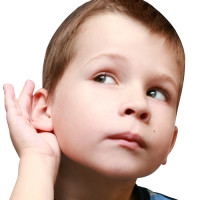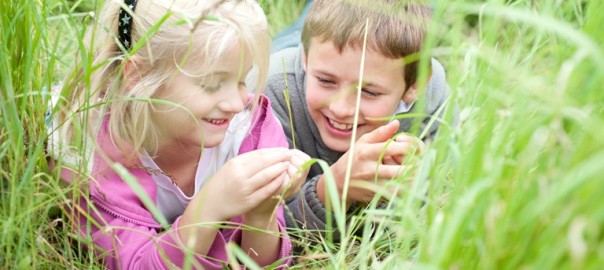 Yesterday we had an evaluation with a neurodevelopmentalist for our ds12; given that I’ve learned so much about neurodevelopment in the last couple of years, I anticipated that she would tell me in-depth specifics particular to my child based on concepts I was already familiar with. And that was true. But I also learned something that really, really shocked me.
Yesterday we had an evaluation with a neurodevelopmentalist for our ds12; given that I’ve learned so much about neurodevelopment in the last couple of years, I anticipated that she would tell me in-depth specifics particular to my child based on concepts I was already familiar with. And that was true. But I also learned something that really, really shocked me.
I’ve always believed that ds12 is an auditory learner and this is what I attributed him being a late reader to. In the home educating environment, that wasn’t an issue; he continued to learn even when his reading skills were weak. His comprehension and memory of what he learns is excellent, and what he seemed to be struggling with were visual skills. I believed he learned best through hearing.
Well, guess what? I learned that ds12 has very poor auditory processing skills, and that he’s compensating for this with his visual processing! You could have knocked me over with a feather. It’s like when you think white is black, and then learn that black is actually white. I was totally and completely wrong on this.
Why does this matter? Poor auditory processing skills are hugely important and have consequences for many kids – I’m sure most of you have a child who isn’t processing well auditorily. The ability to listen affects many life skills- here are a few:
- speech and language
- attention and concentration
- development of appropriate behavior
- learning and memory
- development of social skills
Do you have a child who is lagging in any of those areas? Even without a diagnosis like ADD, ODD, ADHD, depression, anxiety, learning disabilities or autism spectrum disorder, I’m sure at least one of your kids is struggling in one of these areas. Some of these challenges are sometimes attributed to poor parenting or emotional issues and in fact, your parenting approach is very important at the root level.
Last year prior to pulling ds out of school, I consulted with a psychologist who trained with Dr. Gordon Neufeld. Although I began to study (via his dvd trainings) Neufeld’s paradigm of viability and venturing forth over three years ago, I wanted her feedback in understanding why ds was so emotionally reactive. I understood the role feeling safe, secure and supported makes for children, I understood the need to give a child space to emerge at his own rate, and I understood that we don’t push a child into a predetermined mold or expect them to be like anyone else. But this wasn’t enough.
I’m very familiar with several different personality and energy typing systems and how each of these affects the nature of each of my kids. I understand how my energy type interacts with the energy type of others and over time have tried to integrate all of this knowledge into my parenting. But all of this wasn’t helping me figure out why ds12 (just had a birthday – it’s the birthday season for us now!) was still struggling to manage his emotions and had poor social skills.
Well, now I have what feels like the missing piece of the puzzle! The evaluation revealed that ds12 processes auditorily at a level 5. This is the level of a five year old. Remember, I thought that his auditory processing was strong and therefore even though I was knew auditory processing was important, I didn’t think this was an issue for him. Big, big mistake but that’s okay, we learn and move forward!
Okay, pay attention here because this is key! What difference does your level of auditory processing make? It directly correlates to your emotional maturity.
Someone processing at this level won’t pick up social cues. They will overreact emotionally to things you wouldn’t expect an older child to react to. They will be anxious in a new situation because of the fear they aren’t going to get the cues of what is expected of them. This isn’t about intelligence. It’s about not having sufficiently developed this particular skill, and this will be one aspect of the program that is being designed for ds with the goal to get him up to an 8 – 12.
Are you wondering what your auditory processing skills are like? The auditory processing of the average adult in the US has dropped from a 7 to a 6 in the last generation, and we can expect this to continue to drop with the high amounts of visual mediums that people spend hours engaged with daily. This means we are an emotionally much less developed people than in the times that the Constitution was written, for example, when the first sentence of an article could go on for a page and half and speeches could go on for hours.
Nowadays, we can’t hold onto information long enough to process something that long. We need smaller and smaller bites of targeted information because we don’t have the patience or ability to process things that are more complex. On online forums, people apologize for a long post when it’s three paragraphs- hardly enough to put together a complete thought! When I think of what Twitter and Facebook must be doing to our brains (if not heavily limited), to our attention spans and our emotional state, it’s kind of frightening.
As I learn more about the importance of auditory processing, I’m grateful that even though this is something that needs to be improved, there are things I’ve done that have been very important for our kids even without knowing the technical reasons behind it. A couple of these things are:
1) I’ve heavily limited screen time. No computer games, no handheld games, no ipods, ipads, no television. I do use the computer for educational programming, up to four hours a week.
2) I’ve done a lot of reading out loud to my kids from the time they were small until they were much older, as well as providing them with lots of audio books. For our oldest three kids, I stopped our regular read alouds when ds14 went into high school – his late return interrupted a reading routine we had for years and that was a real loss for us. Both dh and I read out loud to all the kids except for dd13, though she listens in if she’s around. Currently dh is reading The Hobbit with ds12, I’m a few chapters into Danny, Champion of the World (Roald Dahl) with ds8, ds6 and ds5.
We also provide them with a lot of audio books. When I figured out how to access the US library system remotely to check out audio books, it was a very exciting for us all! Dd13 and ds12 listen to audio books almost daily. When my oldest kids were younger, I purchased many cassettes of Torah stories that were a daily part of their childhood, and recently have found a way to provide our younger boys with something similar that they listen to several times a week.
Here are a couple other things I’m currently doing: I read a chapter of Sefer Yehoshua/The Book of Joshua out loud at breakfast. (This works out to two or three times a week, not every day.) I read part of the Hebrew text, then translate it into English. Dh learns Pirkei Avos/Ethics of our Father at the dinner table in a similar way.
I just started doing something similar with ds12 last week with a non-Torah text. I happened upon used copies of Harry Potter 5 in both English and Hebrew and bought them a couple of years ago. I read part of a sentence from the Hebrew version and ds then reads me the corresponding translation. We’re both enjoying this a lot even though we have the British version so sometimes I have to translate the British word into American English for something for him. 🙂
We should be receiving our neurodevelopmental program in the next day or so and will be adding in whatever activities are suggested to improve the auditory processing issue, and doing them as a family. The more I learn, the more I see that we can all benefit from improving our processing skills. I remember things best when I see them or write them down, and what I always thought of as being a visual learner means that I need to strengthen my auditory processing.
It’s exciting to know that something that seems so simple – our auditory processing – can actually affect so many things in our lives. The next official evaluation will be in four months and at that time I’ll share what improvements we’ve seen.
Edited to add: A reader emailed me privately to ask if I did this evaluation through the Israeli health insurance system. No, I didn’t. I don’t want to sound negative but my feeling is that it would have been a huge waste of my time and money. The reason is because what the system does best is slap a label on and then push for medication, which is not what interests me. I want to find the core issue and address it, not cover up the symptoms.
Everything for for my kids that I’ve found helpful has been outside of the traditional framework, unfortunately. I’m working with someone privately in the US on this. If you’re wondering how we are doing it from a distance it’s like this: First I filled out a detailed 13 page intake form, and then sent in a number of videos of my son performing various activities that were requested. After this, we had a ‘face to face’ appointment via Skype. Then the program will be designed for him, it will be sent to us, and we’ll be sent training videos of how to do various activities with him.
Avivah



